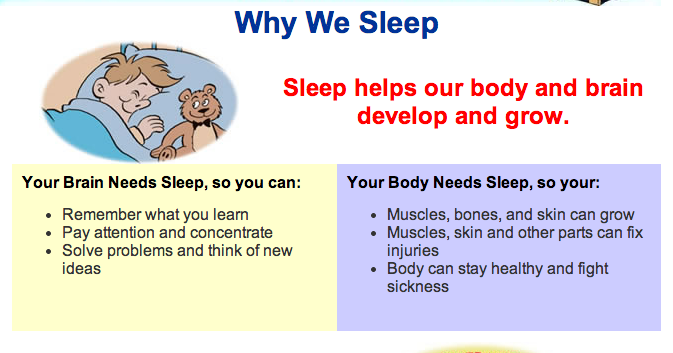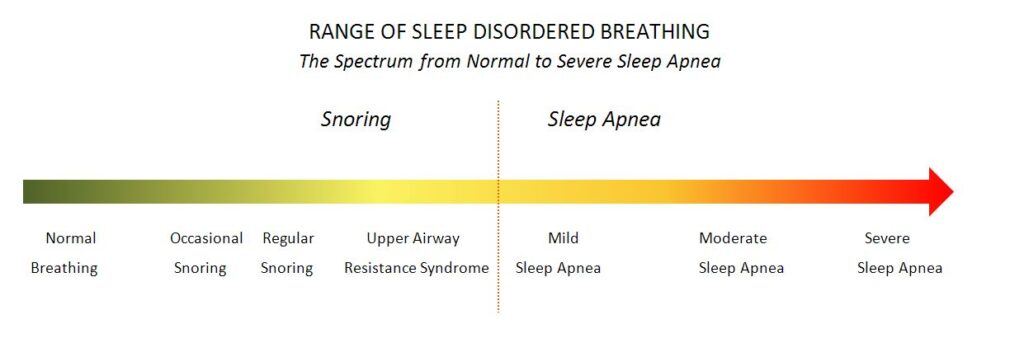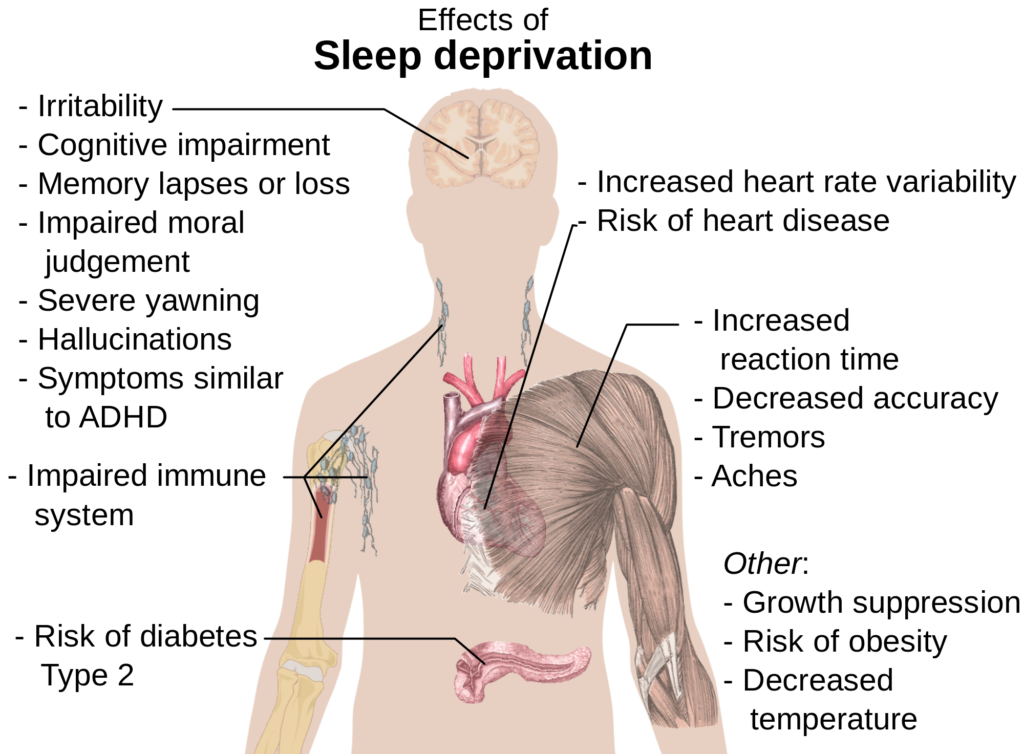Why is Sleep Important and what happens when you don’t get enough? Part-2
Stage IV
This is the deepest sleep stage and it is most difficult to awaken a person in this stage. It consists of 50% or more of delta waves. Delta waves are seen both in 3rd and 4th stage but they are more in deepest sleep stage i.e. 4th stage. In 4th stage a personal stimulus such as familiar name can often arouse a person than an impersonal stimulus such as loud noise, to which person is generally unresponsive.
Bed wetting and Night Terrors occur usually in deepest sleep stage and the body movement is also least in this stage. Between delta waves spindles also occur in 4th stage.

After a person has been asleep for 90 minutes or so another change in EEG occurs. It goes back to Stage I but the subject doesn’t wake up, instead, eyes begin to move rapidly and the activity is recorded as Electro Oculo Grams (EOGs) by the electrodes placed near the corner of the eyes. The period of rapid eye movement is called the REM stage.
Most of our vivid dreaming occurs in REM. When aroused from the REM stage the subject commonly reports a dream. Even though sleep at this stage is light and the person is dreaming it is difficult to arouse the person.
REM periods occur approximately after every ninety minutes during entire time we are asleep and as the sleep progresses they become longer and longer. The first REM period may last only two to five minutes, while the fourth may continue for about 20 to 40 minutes. During an average night sleep, the accumulated time spent in REM periods account for about 22% of the sleeping activity for normal adults. Stages 3 and 4, which appears during the first hours of sleep together, they constitute about 22% of our sleep time. Slightly over half of the night is taken up with stage 2. There are no sex differences in amount patterning of sleep stages, but age is an important variable. There is general pattern of going through the first 4 stages during the initial hour or hour and a half before REM occurs. The deeper stages (3 & 4) tend to disappear in second half of the night as REM becomes more prominent.

Physiological Changes in Sleep (NREM & REM)
Changes in muscle tension occur during REM sleep Electromyogram (EMG) tracings during stages 2,3 & 4 show high level of tension, but this tension disappears during REM periods. Spinal reflexes are also diminished greatly in REM periods. Fortunately, this greater motor inhibition during REM prevents us from physically acting out our imagined activity during dreaming.
Usually emotional responsiveness greatly increases in REM stage. Ecstasy, terror, confusion, or erotic stimulation is also reported by dreamers in REM stage. Apart from these reports, objective measurements also confirm that REM periods are accompanied by intense changes in the autonomous nervous system.
Also Read: Peaceful mind
During NREM stage heart regularly beats about 60 times per minute, but during REM it may decrease to 45 or acrylate to over 100 beats per minute, in fairly short time. Respiration can also change similarly. In contrast to the regular pattern of evenly spaced breathing shown in non REM stage, during REM stage dreamers often exhibit variability in their breathing rate. Genital changes also occur in REM stages. Males have penile erections 90% of time.

Why REM is called Paradoxical Sleep?
REM is also called as Paradoxical Sleep because the brain activity (as recorded in EEG) looks very much like waking activity (low voltage and fast) yet people in paradoxical state are deeply asleep as judged by the intensity of stimulation to wake them.
Why we need NREM sleep?
Unlike REM we have proved that NREM sleep is needed because –
- During NREM sleep body replenish chemical substances that aid in tissue repair, growth and synthesis of proteins.
- NREM sleep may allow neural systems involved in higher mental process (such as learning) to rest.
- Experiments have also shown that during NREM sleep respiratory rate, heart rate, BP and other physiological activities lower down, which enables the concerned organ to take rest.
Sleep Schedules
A new born baby tends to alternate between sleeping and waking. Eventually, day-night rhythm is established. The total sleeping drops from 16 to 13 hours a day, within the first six months of life. Over half of the sleeping activity of newborn involve REM sleep and the percent of REM sleep remains high until 3rd or 4th year. Adults report an average night sleep of 7 ½ hours; however, this varies greatly. There is no sex difference in the amount of patterning of sleep, but age is an important variable. Sleep may decline with age.
Voluntary and Involuntary Sleep
We have great deal of voluntary control in decision when to sleep. Most of us can go to sleep anytime in the day provided conditions are right. Insomniacs have great deal of difficulty in falling asleep.

If not Read : part 1 :Why is sleep important and what happens when you don’t get enough?



Normally I do not read post on blogs, however I would like to say that this write-up very forced me to try and do so! Your writing style has been surprised me. Thanks, very nice post.
Wow, incredible blog layout! How long have you been blogging for? you made blogging look easy. The overall look of your site is great, as well as the content!. Thanks For Your article about sex.
Whats up! I simply want to give an enormous thumbs up for the good information you have got right here on this post. I shall be coming again to your weblog for extra soon.
your website, how can i subscribe for a weblog web site? The account helped me a acceptable deal. I had been tiny
Utterly written written content, thanks for selective information. In the fight between you and the world, back the world. by Frank Zappa.
I really liked your article.Really looking forward to read more. Great.
Thanks again for the blog article.Really thank you! Cool.
I was suggested this website by my cousin. I am not sure whether this post is written by him as no one else know such detailed about my problem. You are incredible! Thanks!
I think other web-site proprietors should take this site as an model, very clean and wonderful user friendly style and design, as well as the content. You are an expert in this topic!
Just Browsing While I was surfing yesterday I saw a excellent article about
What web host are you using? Can I get your affiliate link to your host?
You completed a few fine points there. I did a search on the matter and found mainly people will have the same opinion with your blog.
Regards for this post, I am a big fan of this web site would like to keep updated.
MAC MAKEUP WHOLESALE ??????30????????????????5??????????????? | ????????
There is obviously a bunch to identify about this. I believe you made some good points in features also.
Thanks so much for the blog article.Much thanks again.
I regard something really special in this internet site.
I truly appreciate this article.Much thanks again. Fantastic.
Thanks for sharing, this is a fantastic article.Really thank you! Really Cool.
Very good article.Really thank you! Really Cool.
Thanks-a-mundo for the blog article.Really looking forward to read more. Much obliged.
Thank you for your blog article.Much thanks again. Want more.
Very neat article post.Really thank you! Will read on
Muchos Gracias for your blog.Really thank you! Much obliged.